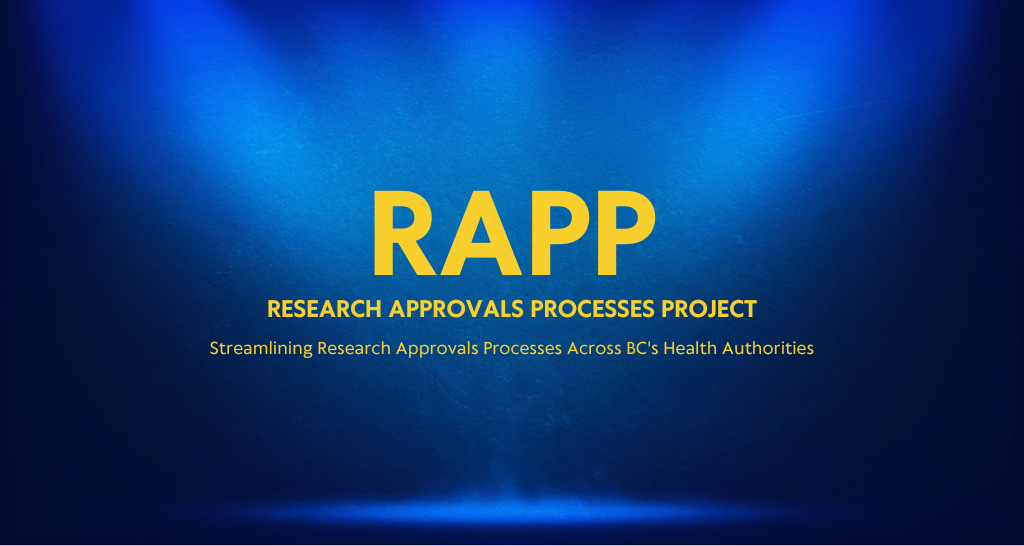Regulatory update: Winter 2022
25 January 2022

Clinical Trials BC Chronicle Winter 2022 – by Jean Smart, regulatory affairs & quality officer, Clinical Trials BC
Welcome to 2022! It is expected to be a year of updates, revision and reflection in Clinical Trial regulation and guidance. In this early 2022 edition you will already find updated documents on the Health Canada Special Access Program (for Drugs), a revised guidance document from the Health Canada Regulatory Operations and Enforcement Branch (ROEB), and a fast tracked draft Step2 revision ICH guidance on Quality Risk Management referenced in both E8(R1) ‘General Consideration for Clinical Studies’ and E6(R2) ‘Good Clinical Practice’.
Health Canada – Special Access Revision
On January 5, 2022, Health Canada released notice that the 2020 document ‘Special Access Program for Drugs: Guidance Document for Industry and Practitioners’ has been revised.
Section 3.13 controlled substances has been updated to reflect the regulatory amendments that restore the possibility of restricted drugs being requested through the SAP
Health Canada’s Special Access Program for drugs (SAP) enables drugs that are not marketed in Canada to be requested by practitioners for the treatment, diagnosis, or prevention of serious or life-threatening conditions when conventional therapies have failed, are unsuitable, or unavailable. Non-marketed drugs may be unauthorized if they have not been approved by Health Canada. This means they have not been assessed for safety, effectiveness, and quality.
Click here to see the revised document. sap-drugs-guid-ld-eng.pdf (canada.ca)
Health Canada – Policy 0030
Health Canada Policy 0030 – ‘Compliance and Enforcement Approach and Inspection Strategy for Clinical Trials involving Human Subjects’ was issued on November 21, 2021. The policy outlines Health Canada’s national compliance and enforcement (C&E) approach, inspection strategy for clinical trials of drugs involving human subjects regulated under both the Food and Drugs Act and the Regulations (Part C, Division 5 “Drugs for Clinical Trials Involving Human Subjects). It also briefly describes the inspection process used for assessment.
- Policy 0030 applies to clinical trials of drugs conducted in humans in Canada:
- phases I to IV
- commercial or academic
- ongoing or completed
- pharmaceuticals, biologics, gene therapies, cell therapies, blood products, vaccines and radiopharmaceuticals
Health Canada’s Regulatory Operations and Enforcement Branch (ROEB) conducts inspections and other compliance and enforcement activities (e.g., compliance verifications (CVs) and investigations) to assess compliance with the Act and the Regulations. This is a valuable read for research team members and certainly for those preparing for an inspection.
inspection-strategy-clinical-trials.pdf (canada.ca)
ICH Q9(R1) – Risk Management
The international Council for Harmonization (ICH) issued a revision of the Q9 guideline on November 18, 2021. The document updates the original ICH Q9 guideline, which is now 16 years old. Plans are to issue a Step 4 guideline by June or September 2022. Official training materials are being developed in advance of the completion of the ICH ‘Step 4 Approval’.
Adoption of a revised guideline would result in “more scientific and robust applications of QRM principles, tools, and activities (ICH Step 2 Training Materials)
The revised guideline introduces new text acknowledging that some degree of subjectivity in QRM is unavoidable while offering methods to reduce or control subjectivity. The revision also includes a new section on formality in quality risk management and the acknowledged lack of understanding as to what constitutes formality in QRM. This is noted in the training materials. The revision also highlights text on the role of quality risk management according to the Step 2 presentation.
ICH_Q9-R1_Document_Step2_Guideline_2021_1118.pdf
The Q9R1 Draft is currently open for consultation.
Health Canada notes that amendments to draft documents may occur because of regulatory consultations and subsequent deliberations within the ICH. Your comments can be submitted through Health Canada using the ICH template for public consultations by April 14, 2022 in order to allow sufficient time for their assessment and subsequent transmission to the ICH. Comments should be directed to:
Health Canada – ICH Coordinator
E-mail: ich@hc-sc.gc.ca





